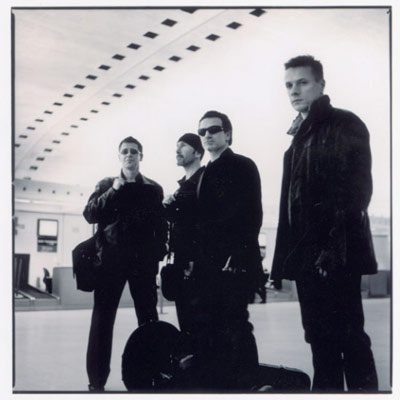Chinese Indie Film
 There was a Chinese Independent Film Festival held here on campus this last weekend, and I had a chance to go see one of the films, which was a great opportunity. The one I saw was called “Walk on the Wild Side”, directed by Han Jie.
There was a Chinese Independent Film Festival held here on campus this last weekend, and I had a chance to go see one of the films, which was a great opportunity. The one I saw was called “Walk on the Wild Side”, directed by Han Jie.This film was a look at the lives of people living in a mining town in rural China, and at the lives of three young men in particular. Xiping (pronounced “shee-ping”) and his two friends Erbao and Liuliu are in a sort of gang together. What exactly the nature of this gang is, besides getting drunk and involved in hooliganism, is never totally clear (it isn’t a drug gang). The story follows the boys from committing a crime together which forces them to leave town, and what happens to them on the road in their travels together. Loyalties are tested, relationships are torn, and all three characters struggle to find their way, together at first and then individually in a country that is changing in many ways, and still highly traditional in others. Xiping himself returns home at the end of the journey, possibly having learned something, or possibly having decided that the world is the way it is and one cannot escape one’s past. The end of the film was interesting in that it was ambiguous and open-ended; it allowed the viewer to read into it heavily. (There was a Q&A session at the end of the film that I couldn’t stay for, but I wanted to ask the director what his intent or meaning in the film’s ending was)
The film was very rough and unstructured. The camera word appeared to be done primarily with handheld cameras, and the plot felt very loose and open. In many ways, both in terms of the dialog (Han Jie himself wrote the screenplay) and in terms of the cinematography, it felt like a documentary. The scenes and characters were shown frankly in their surroundings and actions; honest and unflinching depictions of adultery, families, sex, rape, loyalty, murder, theft, benevolence, all amidst a stark and very harsh backdrop of realistic poverty. The director (who said that he drew heavily on his own experience in making the film) did an excellent job of transporting the audience to this place and into the lives of his characters, of making the audience feel what his characters feel.
Though less structured, it isn’t to say the film was without some profoundly intentional moments. After a high school student gets badly beaten by Xiping and his friends, one of the younger students comes and puts his finger in a pool of blood, staring at it frozenly despite his teacher yelling for him to return to class. Later when Xiping returns home and the owner of the mine, who is the father of one of Xiping’s friends, asks where his son is, Xiping replies quietly after a few moments of silence, “We lost each other along the way. And Liuliu won’t be coming home again.” The most powerful and moving scene to me at the end of the film seeing Xiping break down and start crying while in bed with his girlfriend. The film had a somewhat bleak emotional tone throughout, and the Chinese in general are somewhat restrained; such a depiction of real emotion leant the film a powerful kind of honesty.
I felt the film really reflected some of the struggles of a society grappling to find itself amidst both growing wealth and persistent poverty. Getting a chance to see a picture of today’s China, away from the polished Hong Kong martial arts films and outside the glittering districts of Shanghai, was very powerful.





